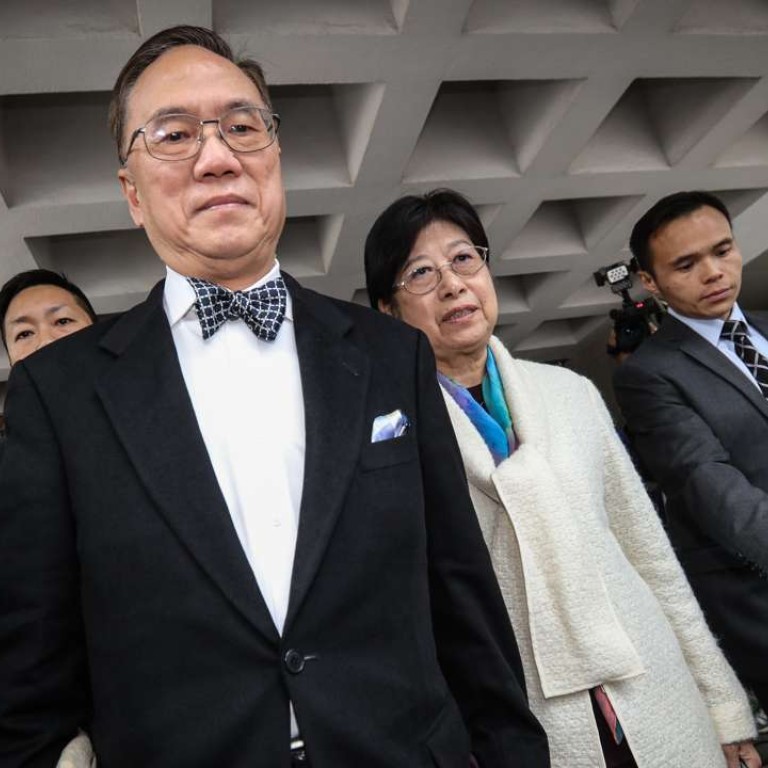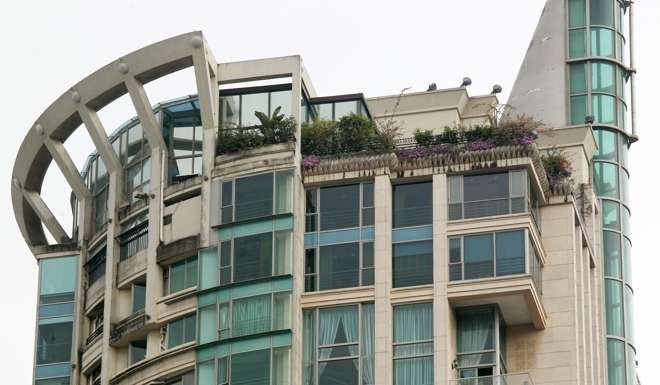
Former Hong Kong leader Donald Tsang ‘used PR tactics to hide truth about flat’
Prosecutor also accuses him of giving corruption investigators false documents about rental deal
Donald Tsang Yam-kuen used PR tactics to conceal the truth of his dealings from the public, the High Court was told on Tuesday.
As details of his rental deal for the three-storey penthouse in Shenzhen at the centre of the allegations against the former chief executive came to public light in February 2012, in the final stretch of his seven years in the job, Tsang “volunteered himself” to go on a Commercial Radio programme.
However, according to lead prosecutor David Perry QC, “he was concealing the true position [about] what had been going on”.
On the programme, Tsang insisted it never occurred to him that he should declare the interest, adding that “if a declaration was to be made it would be far-fetched”.
But Perry argued that Tsang was not being truthful, because he “had been a member of the government or civil service since 1967” and would have been familiar with civil service codes on declarations of interest.
By appearing on the radio programme, Perry said, “he was trying to manage the situation and limit the criticism”.
“Here is a man as chief executive who knows quite a lot about public relations, how to speak to the public and how to convince them: ‘trust me’,” Perry said.

“This conflict of interest was not something that happened on a particular day,” Perry said. “It existed for a period of 14 months.”
Tsang, who stands accused of accepting HK$3.35 million of undeclared benefits mostly in relation to the Shenzhen flat, was also accused of providing untrue documents to the Independent Commission Against Corruption during its 2013 investigation.
According to Perry, ICAC officers obtained three documents from him, including a receipt for 800,000 yuan (HK$896,000).
“If you read the receipt, on its face, the [rental] payment was made on February 21, 2012,” the day after media started reporting his flat, Perry said. “But it wasn’t.”
However, there was, Perry noted, a payment in November 2010 to one of Wong’s companies, part of it arising from a HK$350,000 sum that Tsang’s wife had received from Bank of East Asia’s chairman, David Li Kwok-po.
Tsang has pleaded not guilty to a count of accepting an advantage as chief executive and two others of misconduct in public office.


